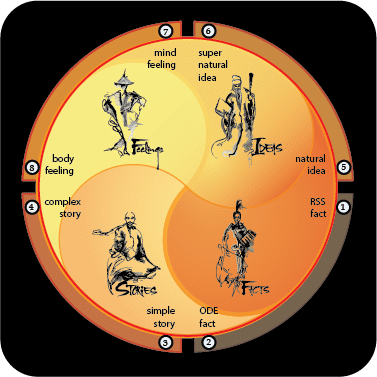Why Is The Scientific Method Such a Big Deal? (It just seems like common sense to me.)
To begin with, when I first read this question, I wondered if it was being posted by a troll. Please realize, I mean no offense to the OP. I’m simply pointing out how open to interpretation this question is. I find this vagueness ironic in light of the motives most scientists aspire to. Most scientists, within their specialties, seek clear and certain knowledge of ourselves and our world. Personally, I admire them for this. But motives alone do not make a method, let alone qualify a method as being derived from common sense.
This question’s vagueness aside, after reading the thirteen current replies, it would seem, most respondents have common sense. Here, by “common,” I mean they can, with some degree of detail, point to the “obvious” advantages in using a method over using none. At the same time, I find myself wondering how many of these folks would be surprised to find, the method they refer to has no clear and certain definition. And to see this as true, one need only search Quora for “scientific method steps.”
People can’t even agree on how many steps are involved, let alone what they are.
This then is the first clear and certain evidence for a lack of common sense when it comes the current method. People often get called out for their work not being scientific. Yet it seems, no one can actually offer a scientific definition for the “scientific method” they’re using to call these people out. And yes, even the vague nebulous method we call scientific is light years better than what came before it. But what came before it was mainly superstition and opportunistically spiritual, mumbo jumbo. Almost any method would be an improvement.
As for the content of the prior answers, I found them, for the most part, well written and filled with intelligent points (I’m not being sarcastic). Yet even here, I wonder how such obviously intelligent posters could fail to mention what to me are such common sense flaws in the current method. One poster references Popper’s falsifiability as being part of the current method. Yet many scientists treat obviously unfalsifiable things like string theory as scientific. And while experiments are obviously vital to a method, most experiments fail to account for even the simplest truth in all of science: that out in the real world, nothing ever repeats the same way twice. Somehow science currently ignores this and treats linearity (esp. linear outcomes) as the proof for a successful experiment, while simultaneously eschewing non-linearity as untenable, experimentally.
Our world and our personalities are non-linear.
Where is the method that addresses this?
Then there is the way several answers grudgingly admit to an occasional lack of rigor in how science performs experiments. For example, one poster points to the downside of not properly accounting for the placebo effect. The thing is, this poster appears to be saying that ruling this non-linearity out would make for better science. To me, what would for make better science would be for science to have clear and certain knowledge of what the placebo effect is.
Finally, I have to admit, I cracked up when someone wrote that this topic could fill a whole book. I published just such a book not too long ago, and during the writing, my editor (whom I love) was constantly telling me, I had to cut it down. Good luck with that. In any event, I thank the OP and all the posters for sharing their thought-provoking efforts and more, for their good-hearted exchanges.
